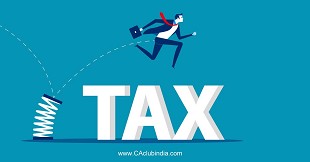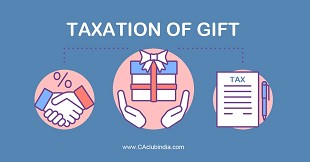Articles by Sahil Dhingra
Guidelines for applicability of Section 194Q
Sahil Dhingra 05 July 2021 at 14:11Section 194Q of the IT Act, which has been effective since 1st July 2021 has created a lot of confusion among taxpayers and professionals. Let us understand the guidelines for the applicability of the section.
Difference in Business Connection & Permanent Establishment
Sahil Dhingra 02 June 2021 at 09:48Section 9 of the Income Tax Act, 1961 explains the concept of Business Connection, while Article 5 of DTAA explains the concept of Permanent Establishment. Let us understand the difference between the two.
Section 50B & Rule 11UAE
Sahil Dhingra 31 May 2021 at 17:36Slump sale means the transfer of one or more undertaking, by any means, for a lump sum consideration without values being assigned to the individual assets and liabilities in such sales.
Consequences of not filing the ITR
Sahil Dhingra 18 May 2021 at 11:21Default in filing the Return of Income within the prescribed due date results in a fee or penalty. In this article, we discuss various fees and penalties u/s 234F, 270A, and 276CC.
Section 40A(2)(b) of Income Tax Act, 1961
Sahil Dhingra 06 May 2021 at 19:11Section 40A(2) of the Income Tax Act lays down provisions for the disallowance of certain payments to relatives. Let us discuss persons covered u/s 40A(2)(b).
Section 194-O | An analysis
Sahil Dhingra 04 May 2021 at 11:42According to Section 194O, an e-Commerce operator is required to deduct TDS for facilitating any sale of goods or providing services through an e-Commerce participant.
A Brief On Equalisation Levy
Sahil Dhingra 04 May 2021 at 09:49India first introduced an equalisation levy in 2016, when it charged 6% of consideration for online advertisement services, earned by non-residents from an Indian resident carrying on a business.
Applicability of Form 15CA & 15CB
Sahil Dhingra 26 April 2021 at 15:35Form 15CA is a declaration of remitter used as a tool for collecting information in respect of payments that are chargeable to tax in the hands of the recipient NRI. Form 15CB is a kind of certification regarding rates and the right kind of tax paid by you.
New Slab Rates in Section 115BAC for AY 2021-22
Sahil Dhingra 17 April 2021 at 17:02From FY 2020-21, taxpayers can choose to pay income tax under an optional new tax regime. The author, in this article, has listed the new slab rates u/s 115BAC.
Section 56(2)(X): Taxation of Gift
Sahil Dhingra 16 April 2021 at 12:02Gift received by any person or persons is taxed in the hands of the recipient under the head Income from other sources and at normal tax rates under Section 56(2)(x) of the Income-tax Act, 1961.
Popular Articles
- No More Forced ITC Order: New Rules from Jan 2026
- Income Tax Return Filing Due Date For AY 26-27: Full Details With New Updates
- Revised Return Due Date Extension
- TDS Rate Chart For Tax Year 2026-27: With Revised Section Codes in Challans
- Simplified GST Changes in Budget 2026: Finance Bill 2026 CGST and IGST Amendments
- ICAI, ICSI & ICMAI to Launch Short-Term Courses to Develop 'Corporate Mitras' in Tier-II & III Towns
- Income Tax Amendments in Budget 2026: Topic-wise Summary of Key Proposals
- Highlights Of Union Budget 2026-27
Trending Online Classes
-
DT & Audit (Exam Oriented Fastrack Batch) - For May 26 Exams and onwards Full English
 CA Bhanwar Borana & CA Shubham Keswani
CA Bhanwar Borana & CA Shubham Keswani -
IDT LIVE Exam Oriented Batch | May 2026, Sept 2026 & Jan 2027
 CA Arpita Tulsyan
CA Arpita Tulsyan















 CAclubindia
CAclubindia
